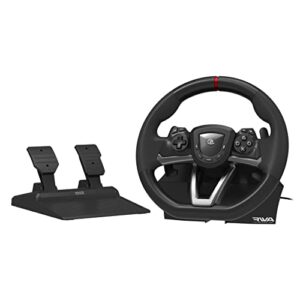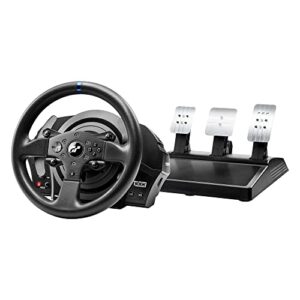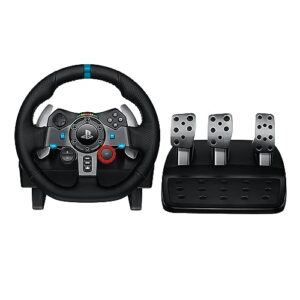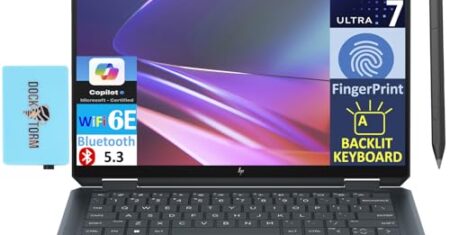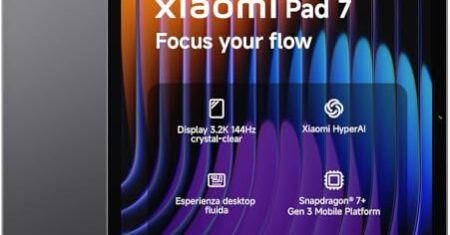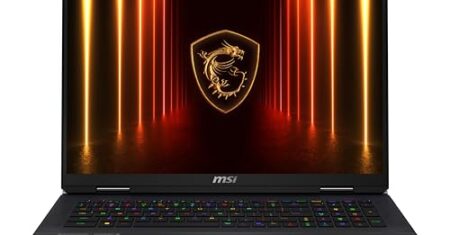Best FreeSync Monitors in 2025 (Top 10: Philips, Acer and More)
Discover the top-rated best freesync monitors for smooth, tear-free gaming performance. Find 4K, 1440p, and high-refresh rate displays that eliminate screen tearing and stuttering.
No more screen tears. You know that split-second rip in the image that ruins a clutch play or a perfectly timed cut of footage? That ends when your monitor and GPU finally agree on the frame rate.
FreeSync brings smoother motion and fewer stutters. Whether you game competitively, edit video, or just want silky desktop scrolling, there’s a low-latency, adaptive option here for you. Pick a panel that matches how you use your machine and the rest falls into place.
Contents
- The Best FreeSync Monitors
- 34" Ultrawide QHD 100Hz ViewFinity Monitor
- 23.8" IPS 75Hz Height-Adjustable Monitor
- 23.8" 165Hz FreeSync Premium Monitor
- 27" FHD 100Hz Ergonomic Comfort Monitor
- 34" Curved Ultrawide WQHD 165Hz Monitor
- 32" Borderless 75Hz FreeSync Monitor
- 27" IPS Full HD 120Hz Monitor
- 22" 100Hz VA Adaptive-Sync Monitor
- 27" Curved FHD 75Hz Monitor with Speakers
- 24" Eye Care 1080p FreeSync Monitor
- Final Thoughts on the Best FreeSync Monitors
- What Is FreeSync?
- How to Choose the Best FreeSync Monitor
- Check Out the Best FreeSync Monitors
- Also Check Out Other Helpful Articles
- Video About the Best FreeSync Monitors
The Best FreeSync Monitors

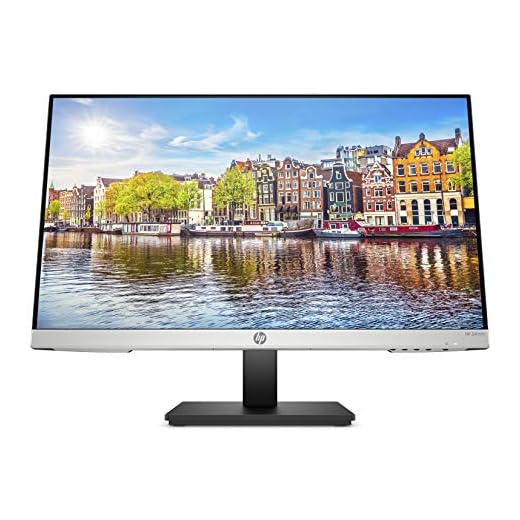






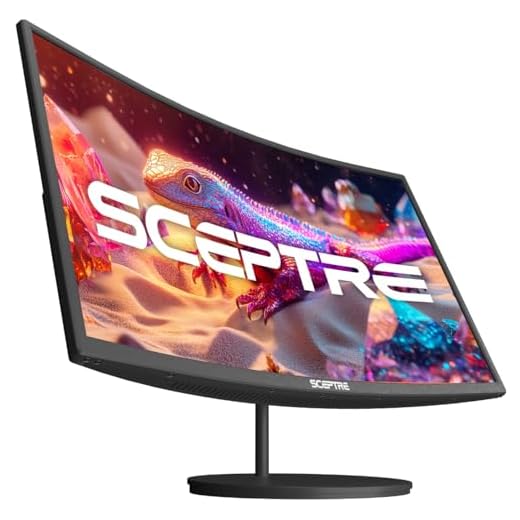

34" Ultrawide QHD 100Hz ViewFinity Monitor
You get a high-resolution 3440x1440 ultrawide with solid refresh and HDR10 support that’s designed for serious multitaskers and creative users. The extra horizontal workspace and high pixel density make it excellent for timelines, spreadsheets, and immersive media.
Pros
- Ultra-WQHD 3440 x 1440 resolution on a 21:9 ultrawide panel
- 100Hz refresh and HDR10 support for smoother visuals
- Eye-care features and thin bezels for a polished desktop
- PIP/PBP support for advanced multitasking
Cons
- No built-in speakers and limited height adjustment on some configurations
- Higher price and more demanding on GPU at native resolution
Purpose and audience
This ultrawide is targeted at professionals and power users who need a large, high-resolution canvas for multitasking, creative work, and immersive media consumption. The 21:9 aspect ratio lets you see timelines, spreadsheets, and multiple windows simultaneously without resorting to multiple displays.
Standout features and benefits
It combines high pixel density with productivity-focused features:
- 34" Ultra-WQHD (3440 x 1440) for expanded horizontal workspace
- 100Hz refresh rate and HDR10 support for smoother, better-looking content
- PIP (picture-in-picture) and PBP (picture-by-picture) to run multiple inputs at once
You’ll appreciate how much time you save by avoiding constant window switching—editing video timelines or working with side-by-side reference documents is noticeably more efficient.
Real-world usage and examples
If you do video editing, coding with multiple terminals, or run multiple spreadsheets, the ultrawide aspect ratio feels like a productivity multiplier. Gamers and media creators also benefit from the immersive field of view in supported titles and the improved clarity for grading and review.
Considerations and caveats
The higher resolution and refresh rate mean you’ll want a capable GPU to take full advantage during gaming. Some models in this class limit ergonomic adjustments (for example no extensive height range), so consider a VESA arm if you need more flexibility. Despite these considerations, it’s a premium pick if you value immersive workspace and high-quality visuals.
23.8" IPS 75Hz Height-Adjustable Monitor
You’ll benefit from a stable IPS panel, height-adjustable stand, and built-in speakers in a compact, stylish package. It’s a very sensible pick if you want a reliable monitor that works well for both productivity and light media work.
Pros
- Excellent value with height-adjustable ergonomic stand
- IPS panel with wide viewing angles and accurate colors
- Built-in speakers and multiple inputs (HDMI, DisplayPort)
- 75Hz refresh gives a bit more smoothness than 60Hz
Cons
- Not designed for high-end gaming or color-critical professional work
- Some advanced connectivity options (USB-C) are absent
Who this serves best
This monitor is one of the most practical choices for home office users who want a dependable, ergonomic display without spending a lot. The height adjustment and pivot capability let you dial in an ergonomic setup that reduces neck and back strain.
Important specs and benefits
You’ll find several everyday conveniences and performance benefits:
- 23.8" IPS Full HD (1920x1080) with 75Hz refresh rate
- Height-adjustable stand, 90-degree pivot and 3-sided micro-edge bezel
- Built-in 2W speakers and VESA mount compatibility
These features make it flexible: mount it on a wall or arm, rotate for portrait-mode tasks, and keep a neat desk footprint.
Practical experiences and tips
Users often praise the solid stand and excellent visual clarity for web work, spreadsheets, and video calls. The speakers are adequate for conference calls or casual video watching. If you want to achieve a dual-monitor setup, the thin bezels keep the seam between screens minimal.
Limitations and final advice
If you’re a creative professional working in color-critical applications or a competitive gamer seeking very high refresh rates, this monitor won’t be ideal. But for most productivity users, it hits the sweet spot in price, comfort, and utility—making it an easy recommendation for everyday computing.
23.8" 165Hz FreeSync Premium Monitor
You get a fast 165Hz panel with 1ms VRB response and FreeSync Premium support, making it a great match for fast-paced competitive titles. The zero-frame design and multiple inputs make it easy to build a compact, high-performance setup.
Pros
- 165Hz refresh rate and 1ms VRB for low motion blur
- AMD FreeSync Premium support for smooth gameplay
- Compact zero-frame design ideal for multi-monitor rigs
- Multiple inputs (DisplayPort + dual HDMI) for versatility
Cons
- 1080p resolution on a 23.8" panel may limit desktop real estate
- Build and ergonomics are basic compared with higher-end models
Purpose and target user
This monitor is aimed squarely at gamers who want high frame rates without a big price premium. The 23.8" VA panel combined with FreeSync Premium and 165Hz refresh prioritizes responsiveness and motion clarity so you can react faster in competitive matches.
Notable features and what they mean for you
Key specs deliver tangible benefits during play:
- 165Hz refresh rate and 1ms (VRB) response for very smooth motion
- AMD FreeSync Premium to reduce tearing and stuttering at variable FPS
- ZeroFrame design for near-seamless multi-monitor setups
You’ll find the display keeps motion crisp and inputs feeling snappy; the HDR-ready label gives a small extra boost on supported content, though it’s not a full HDR experience.
Practical insights and usage tips
If you run an RTX/AMD mid-range GPU, this monitor lets you push high FPS in esports titles without upgrading to an expensive display. The dual HDMI ports are convenient if you want to connect a console alongside a PC. For streamers, the compact bezels and fast refresh rate are welcome.
Limitations
The 1080p resolution is standard here; it’s great for high FPS but offers less workspace for productivity tasks. The stand is functional but basic—if you need wide ergonomic adjustment, you’ll want a VESA arm. Overall, it’s one of the best price-to-performance picks for gamers who prioritize frame rate.
27" FHD 100Hz Ergonomic Comfort Monitor
You get an ergonomically flexible monitor with a TUV-rated eye comfort feature set and a 100Hz panel that’s great for long workdays and light gaming. The integrated speakers and polished design make it a versatile all-rounder for home office setups.
Pros
- ComfortView Plus for reduced blue light and eye comfort
- 100Hz refresh with 99% sRGB color coverage
- Full ergonomics: height, tilt, swivel, pivot
- Integrated 2x5W speakers for convenience
Cons
- No USB-C input (limits single-cable laptop setups)
- 1080p resolution may feel low on a 27" screen for some users
Design intent and ideal user
This model is aimed at professionals and hybrid workers who prioritize eye comfort and adjustability. The combination of ComfortView Plus and full ergonomic adjustments helps you maintain a healthier posture and reduces eye strain during long sessions.
Important features explained
The monitor pairs comfort with solid visual performance:
- 27" FHD (1920x1080) panel with 100Hz variable refresh rate
- TUV Rheinland Eye Comfort 4-star rating (ComfortView Plus)
- 99% sRGB coverage, 1500:1 contrast, and integrated 2x5W speakers
- Height, tilt, swivel, and pivot adjustments for personalized ergonomics
You’ll appreciate the adjustable stand during long days of spreadsheets and video calls; the speakers remove the need for desktop speakers in many cases.
Practical usage scenarios
If you alternate between document editing, collaboration calls, and light media or gaming, this monitor adapts. For instance, you can pivot the screen for portrait-mode coding or tilt it for a comfortable viewing angle during long presentations.
Trade-offs and final thoughts
The absence of USB-C is the main modern connectivity omission; if you want a single-cable laptop docking experience, you’ll need a hub. Also, at 27", 1080p results in lower pixel density than 1440p, so if you do fine-grain design work, consider a higher-resolution alternative. For most users who value comfort and a stylish, practical display, this is an excellent balanced choice.
34" Curved Ultrawide WQHD 165Hz Monitor
You get a true ultrawide 3440x1440 panel with a fast refresh rate and pronounced curvature that draws you into games and gives you expansive desktop space. It’s a smart, affordable way to upgrade to a cinematic workspace.
Pros
- 3440 x 1440 ultrawide resolution for increased workspace
- 1500R curvature and 165Hz refresh for immersive gaming
- 1ms MPRT response to reduce motion blur
- Multiple inputs including dual DisplayPort and HDMI
Cons
- Large size can be demanding on GPU at native resolution
- Some text and UI elements may appear softer depending on scaling
Purpose and size
This 34" ultrawide is designed for users who want immersive gaming and substantial productivity benefits from a single large display. The 21:9 aspect and 3440x1440 resolution give you more horizontal real estate for timelines, spreadsheets, and side-by-side documents than a standard 16:9 monitor.
Feature highlights
It packs a suite of gaming and media-friendly specs:
- 3440 x 1440 WQHD resolution on a 34" curved (1500R) panel
- Up to 165Hz refresh rate and 1ms MPRT for smooth, crisp motion
- AMD FreeSync Premium compatibility and built-in backlighting accents
If you edit video timelines or keep multiple windows open, you’ll save time flipping between apps. Gamers benefit from the wide field of view and fast refresh to spot details earlier.
Practical considerations and workflows
When you work in spreadsheets or creative timelines, the extra width means you can view more columns or an expanded timeline without zooming out. Gamers will enjoy a cinematic field of view in supported titles. Users with mid-range GPUs should be mindful that native WQHD at high refresh rates requires more rendering power; you might drop some settings to maintain high FPS.
Limitations
Because of the large pixel count, you’ll need a capable GPU for high refresh gaming at native resolution. Additionally, some applications and older games may not fully support 21:9 without black bars or stretched UI—check compatibility for titles you play most. Despite these caveats, it’s a compelling ultrawide for both work and play.
32" Borderless 75Hz FreeSync Monitor
You’ll get a spacious 32" borderless panel that’s ideal for multitasking, watching media, and casual gaming thanks to FreeSync and Game Mode. It’s an attractive, modern display that fits well in home offices and living rooms.
Pros
- Three-sided borderless design for clean multi-monitor setups
- Advanced eye-care features for long sessions
- AMD FreeSync and Game Mode for smoother visuals
- Large 32" screen provides generous workspace
Cons
- Only 75Hz refresh limits appeal to high-FPS gamers
- No built-in speakers on some variants
Design and use cases
This 32" borderless monitor is built for users who want a large, clean-looking display for productivity, entertainment, and casual gaming. The three-sided thin bezels reduce distractions and let multiple screens line up with minimal gaps.
Features that stand out
It combines comfort and usability features that matter:
- 32" Full HD (1920x1080) with AMD FreeSync and Game Mode
- Advanced eye-care tech to reduce blue light and flicker
- HDMI and DisplayPort inputs for flexible connectivity
You’ll find the screen great for spreadsheets, large documents, and streaming movies. The big size makes reading multiple apps simultaneously easier without switching windows constantly.
Real-world impressions
If you’re upgrading from a smaller monitor, the expansive view is immediately noticeable—for example, you can have a document and reference window open side-by-side comfortably. The FreeSync support helps when you switch into gaming sessions, reducing tearing on supported GPUs.
Considerations
The main limitation is the 1080p pixel density at 32"; text and UI elements will be larger and slightly less crisp than higher-resolution panels. If you sit close to the monitor or perform detailed photo/video editing, consider a 1440p panel. For general productivity and media consumption, though, it’s an attractive and well-rounded choice.
27" IPS Full HD 120Hz Monitor
You get a large 27-inch IPS panel, adaptive-sync compatibility, and a high refresh option without spending much. It’s a sensible pick if you want an all-purpose monitor that works for both office tasks and light gaming.
Pros
- 27-inch IPS panel with wide viewing angles
- Up to 120Hz refresh for smoother motion
- Adaptive-Sync (FreeSync compatible) for tear-free gaming
- Good color coverage (sRGB 99%) for the price
Cons
- Stand lacks height adjustment
- Speakers and connectivity are basic
Design and purpose
You’ll find this model works best when you want a large, affordable screen that doesn’t compromise on color or refresh rate. The 27" IPS panel gives you consistent colors across wide viewing angles, and the thin, near-borderless design helps a dual- or triple-monitor setup look modern and clean.
Key features and benefits
The monitor focuses on practical benefits that matter day-to-day:
- 27" Full HD (1920 x 1080) IPS panel with 99% sRGB
- Adaptive-Sync support (FreeSync compatible) and up to 120Hz refresh
- Eye-protection features (flicker-free, low-blue light) and tilt adjustment
You’ll notice smoother gameplay at higher refresh rates and accurate color reproduction for documents, streaming, and light photo edits.
Real‑world use and examples
If you split time between spreadsheets, video calls, and casual gaming, this unit does everything competently. For example, you can run your work apps side-by-side while keeping a browser or chat window visible. Gamers on mid-range GPUs will appreciate the FreeSync compatibility; it reduces tearing without needing a pricey GPU.
Limitations and practical considerations
There are a few trade-offs to keep in mind: the stand does not offer height adjustment so you’ll likely need a monitor arm for perfect ergonomics. Also, the native Full HD resolution on a 27" screen is serviceable but not as crisp as 1440p; if you sit very close or do detailed graphics work, you may prefer a higher-resolution panel. Overall, it’s a strong budget choice if you prioritize screen size, color, and refresh rate over premium extras.
22" 100Hz VA Adaptive-Sync Monitor
You get a compact 22" display with a 100Hz refresh and Adaptive-Sync technology that suits light gaming and everyday work. Its small footprint and eye-care features make it a practical secondary monitor or budget first display.
Pros
- 100Hz refresh rate for smoother motion than 60Hz
- Adaptive-Sync for reduced tearing in games
- Eye-care features (LowBlue Mode and flicker-free)
- Compact footprint good for small desks or multi-monitor setups
Cons
- Smaller 22" screen limits multitasking space
- VA panel may have slower pixel transitions compared with IPS
Who this monitor is for
If you need a compact second screen for a tight desk, or you want an inexpensive entry into higher refresh rates, this 22" monitor fits the bill. You’ll appreciate the lighter weight and small footprint, particularly in multi-monitor configurations or small-office setups.
Key features and benefits
The monitor balances budget sensibility with a handful of useful features:
- 22" Full HD (1920x1080) resolution with a 100Hz refresh rate
- Adaptive-Sync to smooth out gameplay frame pacing
- LowBlue Mode and flicker-free tech to reduce eye strain during long sessions
These features make it a solid choice for casual gamers, students, and office users who want a little extra smoothness over a standard 60Hz panel.
Real-world usage
You can run a web browser, a document, and a communication app comfortably on this display, or use it as a gaming monitor for titles where high resolution isn't required. For example, competitive indie and 2D titles will look and feel noticeably better at 100Hz.
Trade-offs to consider
The reduced screen real estate is the main limitation: you’ll switch windows more often than on a 24–27" display. Also, the VA panel can exhibit slower pixel response in some scenarios, which may introduce minor ghosting in very fast-moving scenes. Still, for the price and compact size, it’s an efficient, comfortable option.
27" Curved FHD 75Hz Monitor with Speakers
You get an immersive 27" curved screen and built-in speakers at a very low price, which makes it an appealing pick for casual gaming, media, and general productivity. It’s a useful upgrade if you want a larger panel without a big outlay.
Pros
- Affordable 27" curved screen for immersion
- Edge-less design for cleaner multi-monitor setups
- Built-in speakers and multiple inputs (HDMI, VGA)
- 98% sRGB color coverage for vivid color
Cons
- 75Hz refresh offers only modest motion improvement
- Lower brightness and contrast compared to more expensive panels
Who should consider this monitor
If you want a larger screen to enjoy movies, browse, and do office tasks without spending much, this 27" curved display is an attractive option. The curvature adds a sense of immersion you don’t get from flat panels at the same price.
Key features and what they do for you
The monitor provides straightforward, useful capabilities:
- 27" Full HD curved (1500R) panel with up to 75Hz refresh
- Built-in speakers and both HDMI and VGA inputs
- Edge-less bezel design and solid metal-like finish
This combination makes setup easy, and you can use it as a primary display for a living-room PC or as a secondary for your home office.
Everyday usage and tips
For streaming and console play, the large curved screen delivers a more cinematic feel. The built-in speakers are serviceable for casual listening and video calls, and the edge-less bezel helps when pairing two monitors side-by-side. If you play high-frame-rate competitive games, note the 75Hz ceiling; it’s better suited to casual or single-player gaming.
Limitations to be aware of
The monitor’s FHD resolution on 27" is fine for general use but won’t match the clarity of 1440p at the same size. Color accuracy and brightness are good for the price, but they won’t satisfy professional photo or video editors. For most users looking to replace an old 24" or 27" monitor, it’s a compelling value-driven upgrade.
24" Eye Care 1080p FreeSync Monitor
You’ll get a no-frills 24" FHD monitor with eye-care modes and FreeSync compatibility that suits mixed office and casual gaming use. It’s a compact, budget-friendly choice when you need a dependable display without extra bells and whistles.
Pros
- Supports up to 100Hz for smoother motion
- Eye-care features and wide 178° viewing angle
- VESA compatible for flexible mounting
- Includes HDMI and VGA inputs
Cons
- Build and feature set are very basic
- No built-in speakers on most SKUs
Who should buy this monitor
Choose this display if you need a simple, affordable 24" monitor that places a premium on eye comfort and straightforward connectivity. It’s especially useful in classrooms, small offices, or as a secondary home monitor.
Key specifications and practical benefits
The monitor focuses on essential reliability rather than flashy extras:
- 24" Full HD (1920x1080) resolution with up to 100Hz capability
- FreeSync support to reduce screen tearing during casual gaming
- VESA mount compatibility, HDMI and VGA inputs
These features let you mount the screen on an arm, connect older systems, and enjoy reduced tearing in titles that support variable refresh.
Everyday usage notes
You’ll find the monitor adequate for web browsing, spreadsheets, and streaming video. The eye-care modes help during long stretches of reading or editing, and the slim bezels work well in multi-display setups.
Drawbacks
Expect a basic plastic build and fewer premium materials or advanced features like USB hubs, height adjustable stands, or high color accuracy. If you rely on color-critical work, or you want built-in speakers and advanced ergonomics, you’ll likely look elsewhere. As a low-cost, dependable display for general tasks, it does the job well.
Final Thoughts on the Best FreeSync Monitors

If you want the best pure gaming experience on this list, choose the 23.8" 165Hz FreeSync Premium Monitor. Its 165Hz refresh, 1ms VRB response, and FreeSync Premium support deliver the lowest input lag and the smoothest motion for fast-paced shooters and esports. Pick this if you prioritize responsiveness, a compact footprint, and a high-refresh competitive edge.
If your priority is productivity, content creation, or immersive media, go with the 34" Ultrawide QHD 100Hz ViewFinity Monitor. The 3440×1440 ultrawide panel gives you roomy timelines, large spreadsheets, and cinematic immersion, while HDR10 and high pixel density make visuals look cleaner and more detailed. Choose this if you need screen real estate and image quality for creative work or multitasking.
(Quick note: if you need a larger, more casual FreeSync screen for mixed use and media, the 32" Borderless 75Hz FreeSync Monitor is a solid, budget-friendly alternative.)
What Is FreeSync?
FreeSync is a technology created to prevent screen tearing during gaming. It keeps the graphics card and monitor perfectly synchronized, ensuring that refresh rates match and images flow smoothly.
When the refresh rate of the monitor and GPU don’t align, you may notice stuttering or tearing. FreeSync works to stabilize this by keeping both in sync, resulting in a much smoother gameplay experience.
If you’re looking for the best FreeSync monitors, understanding how to choose the right one is just as important as the technology itself. Factors like screen size, refresh rate, response time, resolution, and connectivity options all play a role in your final decision.
How to Choose the Best FreeSync Monitor
When shopping for the best FreeSync monitors, keep in mind a few essential details. Screen size, refresh rate, response time, resolution, and input options can make a big difference in your gaming setup. Below are the key features to consider.
1. Go for Curved Screens on Monitors Larger Than 29 Inches
Screen size is one of the first things to check. FreeSync monitors usually range from 21 to 32 inches. Smaller monitors (21–24 inches) are ideal for players who want the entire screen visible without moving their head, and they’re often more affordable.
For larger displays, curved screens or those above 29 inches provide a more immersive experience and a wider field of view. This can improve reaction time in fast-paced games and also allows for multitasking, with room for additional windows alongside your gameplay.
Best Phones With 6 Inch Screens
2. Choose a Resolution of Full HD or Higher
Resolution is crucial for sharp visuals. Full HD (1920 x 1080) is the minimum recommended for gaming. However, you’ll also find models with ultrawide 21:9 aspect ratios and resolutions close to 2K, such as 2560 x 1080 pixels.
Quad HD (2560 x 1440) offers even better clarity, while 4K (3840 x 2160) is the ultimate option for detailed visuals. Keep in mind, though, that higher resolutions can be more demanding on your system.
3. Look for Refresh Rates Above 60 Hz
The refresh rate determines how many times the image is updated per second. A higher rate means smoother motion. Standard monitors usually offer 60 Hz, which is fine for console gaming.
For PC gaming, however, 120 Hz or higher is ideal. Competitive FPS players often prefer monitors with 144 Hz or even up to 240 Hz, as these provide an edge in speed and responsiveness.
4. Pick Monitors With Response Times of 5 ms or Less
Response time measures how quickly pixels change when images move. A lower response time reduces motion blur and ghosting, both of which can ruin the gaming experience.
For gaming, a response time of 5 ms or less is recommended. Many of the best FreeSync monitors now offer 1 ms response times, delivering ultra-smooth performance for fast-paced titles like shooters or racing games.
5. Check for Game Modes and Image Optimization Features
Many FreeSync monitors include preset modes designed to enhance gaming visuals. A Game Mode, for example, optimizes brightness, contrast, and color for better clarity.
Some monitors also include multiple presets tailored for specific genres such as RPG, FPS, or racing games. These adjustments ensure the graphics look their best for whatever type of game you’re playing.
6. Pay Attention to Connectivity Options
Connectivity is another key factor when choosing the best FreeSync monitor. HDMI is essential for connecting consoles or laptops, while DisplayPort offers superior quality and higher refresh rates, especially useful for multi-monitor setups.
USB ports are great for charging devices or connecting peripherals, while VGA can still be handy for older hardware. Also, check for audio in/out ports for headsets and external speakers, which can improve your overall gaming experience.
Check Out the Best FreeSync Monitors
Still not sure which one to choose? Click the link below to see the best-selling products.
Also Check Out Other Helpful Articles
Take a look at more useful articles that can help you make more informed decisions.
- Best PS4 Accessories in 2025 (Top 9: HORI, eXtremeRate, and More)
- Best Racing Wheels For PC in 2025 (Top 8: Logitech G920, Numskull and More)
- Best Racing Wheels For PS4 in 2025 (Top 9: Logitech G29, Thrustmaster F1 and More)
Video About the Best FreeSync Monitors
We created a video on the topic. Just click to watch.
About the Author
